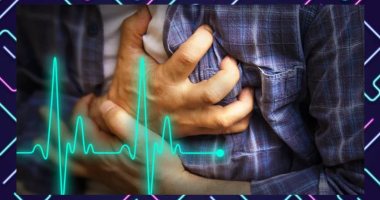
Type 1 diabetes otherwise known as “juvenile diabetes” is defined as a chronic condition that occurs when your immune system destroys cells in your pancreas or beta cells. Which is responsible for producing insulin. What this means is that if you have diabetes type 1, your body will not be able to produce insulin.
Insulin is a hormone that helps to breakdown starches, sugar (glucose) and other foods you eat into energy. Apparently, you should know energy is needed for your daily activities.
Children and young adults are commonly diagnosed with type one diabetes but it can appear at any age with no permanent cure. Research showed that 5-10% of Americans who are diagnosed with diabetes have type 1 diabetes.
However, it is not a death sentence if you have type 1 diabetes. In fact, the outlook for people living with the condition is far better than it was 20 years ago. People with type 1 diabetes can live just as long as people without diabetes with proper treatment (daily insulin) and the right education.
Causes
Presently, the main cause of diabetes type 1 is not well known. With this disease, your body’s immune system which normally attacks viruses and bacteria damages (by mistake) the insulin-producing cells (Langerhans islets) in the pancreas or beta cells.
Additional causes include:
- Genetics – That is, you’re like to inherit it if a family member has it.
- Environmental factors
- Viral infections such as measles, influenza, polio, or other viruses are rumored to cause it. Which is why diabetes type 1 is very common in young children as those epidemics affect younger children more often than older adults
Symptoms
Diabetes is a serious issue and type 1 is the worst. With diabetes type 1, the cells producing insulin in your body are destroyed. As a result, causes (hyperglycemia) an increased amount of blood sugar. Symptoms can develop over a short period of time. Early and common Symptoms of diabetes type 1 include:
• Increase in urine production
• Dehydration (lack of water in the body)
• Feeling very thirsty – this is as a consequence of increased urine production
• Dryness in the mouth
• Urinating more often than usual, particularly at night (which may lead to bed – wetting in children who usually don’t bed-wet)
• High appetite for food – which may happen while you’re eating or right after.
• Extreme tiredness and weakness of the body
• Weight loss, even when you’re feeding well
• Impaired or blurred vision
• Infection of the skin, vagina or urinary tract
• Nausea and vomiting – This is dependent on an individual’s body system
• Forced or stressed breathing
• Slow healing of wounds or injuries
• Low sexual performance for men ( in some cases)
If you feel hungry after eating, the reason is that your body can not use glucose as an energy source. As a consequence, you get tired easily. Since the body can not absorb sugar or glucose into the blood cells, a way to release it is through frequent urine pass out. Urinating often leads to losing excess water – Thus making you thirsty than usual.
By diabetes type 1 the blood sugar level is high and if not stabilized to normal, there will be an accumulation of chemicals in the body called ketones. This condition is called diabetic ketoacidosis. It a serious condition that can lead to coma or death. The signs of ketoacidosis are:
• Vomiting,
• Stomach pain
• Rapid breathing
• Flushed face
• Excessively high Pulse rate
• Somnolence (abnormal tendency to sleep)
• Fruity breath odor
• Loss of consciousness (this is not common to occur)
• Itchy skin and dry mouth
These signs also demand you see your doctor right away. Type 1 diabetes in the long term can severely hurt the blood vessels in vital organs. This can further cause damage to the heart, eyes, kidneys or other body organs.
Risk Factors
What increases a person’s risk of having type 1 diabetes is still unclear. However, the following may be known to play a vital role.
Genetics or family history. If your parent or sibling has type 1 diabetes, you have a little increased risk of developing the condition as well. In addition, the presence of certain gene triggers the risk too.
Age. Type 1 diabetes can affect any age group. It’s mostly found in children under 14. The noticeable peak phase of the disease in children is divided into two. The first is between 4 and 7 while the second is between 10 and 14 years old. In adults, under 40 are mostly affected.
Complications
The complications of diabetes can be disabling and life-threatening at the same time. If left without control or treatment can affect major organs in your body. This includes the nerves, heart, blood vessels, eyes, and kidneys. So, maintain a normal blood sugar level to reduce the risk of complications that may arise.
Possible complications include:
Pregnancy complications. Expectant mothers can also be affected by diabetes (gestational diabetes) High blood sugar levels can be dangerous for both mother and baby. The risk of premature birth, congenital anomalies, miscarriage, neonatal jaundice, and other birth problems increases when diabetes isn’t controlled properly.
Other risk-prone to mothers include diabetic ketoacidosis, preeclampsia, diabetic eye damage (retinopathy) and pregnancy-induced high blood pressure.
You can also read about How To Keep You And Baby Safe During Pregnancy
Neuropathy ( nerve damage). High blood sugar can destroy the walls of the tiny blood vessels that nourish the nerves, especially the leg nerves. This can result in burning, pain, tingling or numbness that often begins at the tips of the toes or fingers and spreads upward gradually. If proper care is not taken, you may lose sensitivity or feelings in the limbs affected.
Nerve damage that affects gastrointestinal tract may cause nausea feelings, vomiting, diarrhea or constipation. It can even lead to erectile dysfunction in men.
Skin and mouth diseases. Adults or children with diabetes can have bacteria or fungal infections that may affect the skin and mouth. Possibly the gum is likely to be affected as well.
Heart and blood vessel disease. Diabetes is a serious condition that increases your risk of having cardiovascular problems. Chest pain (angina) coronary artery disease, heart attack, stroke, narrowing of the arteries (atherosclerosis) and high blood pressure are common issues associated with it.
Read up on 10 Ways To Avoid Heart Attack
Foot damage. Foot complications usually occur when the foot nerves are diseased or if the blood flow to the feet is poor. With diabetes, cuts, injuries or bruises can be slow to heal and if treatment is delayed may result in serious infections. Amputation of leg, toe or feet may also be required if the condition becomes severe.
Retinopathy (eye damage). Damage to the retina blood vessel as a result of diabetes can cause blindness or vision loss. This condition is known as diabetic retinopathy. Also, People with diabetes are likely to develop other vision condition including cataracts and glaucoma.
Kidney Disease (nephropathy). Diabetes can damage your small blood vessel responsible for filtering waste from your blood. If the harm is severe, it may lead to kidney malfunctioning or kidney disease – Thus may lead to death. Treatment can require dialysis or a kidney transplant.
Treatment
Treating or managing diabetes type 1 can be challenging, but the earlier you start to improve your condition the better. This condition requires your effort and the help of medical professionals.
The key thing to do when diagnosed with type 1 diabetes is to arm yourself with relevant and helpful information. Having the condition shouldn’t stop you from living a normal and healthy life.
Give more care to your eyes, feet, and skin as well as your heart and oral health. This basic care could prevent diabetes complications later in life.
Other recommendations are:
Quit smoking. Smoking increases your risk of diabetes complications, including heart attack, stroke, nerve damage, and kidney disease. If you don’t know how to stop it, ask your doctor to walk you through it.
Limit alcohol intake. Drinking too much alcohol can cause either high or low blood sugar levels, depending on the amount you consume. Taking alcohol demands you eat good food to balance it up. So, drink in moderation and eat healthy meals. Also, check your blood sugar levels with a testing device before going to sleep.
 Take your Insulin shots regularly. If you have type one diabetes, you’ll need to take insulin shots (or wear an insulin pump) every day to manage your blood sugar levels and get the energy your body needs. Insulin can’t be taken as a pill because the acid in your stomach would destroy it before it could get into your bloodstream. Work with your doctor to figure out the most effective type and dosage for you.
Take your Insulin shots regularly. If you have type one diabetes, you’ll need to take insulin shots (or wear an insulin pump) every day to manage your blood sugar levels and get the energy your body needs. Insulin can’t be taken as a pill because the acid in your stomach would destroy it before it could get into your bloodstream. Work with your doctor to figure out the most effective type and dosage for you.
Reduce stress. Stress is a part of life, but it can make coping with diabetes difficult. prolonged stress can prevent insulin medication from working effectively. To ease stress, prioritize your tasks, set some limits for yourself and relax often. Getting enough sleep could also help you improve your condition.
Eat healthy meals. Reduce your daily food portion. Make your meals around nuts, lean meat, fish, beans, brown rice, oatmeal and low-calorie drinks like unsweetened iced tea. Also, include vegetables and fresh fruits. If you’re not clear, talk with your dietitian about the best choices to keep your blood sugar balanced.
Stay physically active. Being physically active regularly is a great step in managing your condition. It can help you lose extra weight, keep healthy blood sugar levels, control cholesterol and lower your blood pressure. It also can help protect you from problems with your eyes or kidneys.

Go for a check-up regularly. Keep your blood sugar levels as close to the target as possible. It will help you prevent or delay diabetes-related complications. Ask your doctor how often you should check your status and what your target blood sugar levels should be.
Read up on how to lower your blood sugar levels naturally
Stay updated. Keep up with regular appointments with your health expert to be sure you’re on track with your treatment plan and to get help with new ideas and strategies if needed.
Summary
Type 1 diabetes is an autoimmune condition that strikes at any age, but most often begins in childhood. With this sickness, your body is unable to produce insulin. Symptoms and signs for diabetes type 1 can develop in weeks or months and there is no known way to prevent or cure it. However, it can be managed with proper medications and lifestyle changes. It is important you seek medical help if you have any of the symptoms mentioned in this article. Also, work with the recommendations here, but do so under the watch of your doctor.
You can also read about other types of Diabetes that exist.









